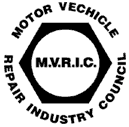Buying a Repairable Write-Off
The NSW Government has announced new legislation to ban the re-registration of all statutory written-off vehicles (WOV). The move comes as the Government toughens its stance on car re-birthing, and means the WOV's registration is cancelled and recorded against its VIN on the Register. A statutory write-off will never be permitted to be re-registered in any State or Territory. It is hoped the new legislation, introduced on 31st January, 2011 will help stop the sale of potentially unsafe vehicles to unsuspecting customers.
What is a Statutory Write-Off?
A "statutory write-off" refers to a vehicle too badly damaged to be repaired to a standard that is safe for road use. The vehicle identification number (VIN) is recorded as a statutory write-off, and the vehicle is not allowed to be registered in any State or Territory. These vehicles are only suitable for use as parts or scrap metal. Vehicles have to be marked as a statutory write off when they have been in salt water, fresh water above the dashboard for more than a certain time, and also in the cases of extreme damage.
What is a Repairable Write-Off (RWO)?
Cars that have been in an incident and suffer significant damage can be classified as a “repairable write-off” (RWO). Essentially, these cars are deemed uneconomical to repair by an insurance company and a payout is made to the owner for the value of the vehicle. Many of these RWO's are sold at damaged vehicle auctions, repaired by their owners, and put through a written-off vehicle inspection. Once the repaired vehicle is deemed roadworthy, it re-registered and can be sold on. However, a vehicle that is classified as a "repairable write-off" will have a listing on the written off vehicle register (see sample Car History Report).
What if I buy a Repairable Write-Off (currently registered)?
There is nothing essentially wrong with buying a repairable write-off as it must have passed a number of regulatory checks before it is re-registered and put back on the road. But, what it will affect is the perceived value of the vehicle, as a RWO will generally fetch a much lower price on the market. Buyers need to keep this in mind when negotiating on the price of the purchase.
What if I buy a Repairable Write-Off (currently unregistered)?
Roads and Maritime Services (RMS) will only consider an application to repair and re-register a RWO in limited circumstances. This applies when there is no non-repairable damage and if the vehicle fits one of the exempt categories (see Registering a Repairable Write-Off). If authorisation to repair to vehicle is granted, it must be repaired to the manufacturer’s guidelines or recognised industry standards. Once repairs are complete, your repairer will give you a Certificate of Compliance declaring that the vehicle has been repaired to the required standards. You’ll then need to have the vehicle inspected at an Authorised Unregistered Vehicle Inspection Station (AUVIS), and get an identity and safety check. The vehicle will also need be inspected by the RMS Vehicle Identification Inspection Unit (VIIU). It is recommended that you keep all information to do with the repair process, including invoices and receipts for parts, to support your application for registration.
How can I find out if a vehicle is a Repairable Write Off (RWO)?
Unfortunately, sellers may not be upfront about a car history. Many sellers will make up personal reasons for why the car is priced so low, like the owner lives overseas and is looking to sell the car at any price etc. Or, worse still, they'll try to illegally sell you a “statutory write-off” which has been deemed unfit for the roads and must be used for scrap.
A RWO stays registered with the Written-off Vehicle Register, so it’s easy to find out if a seller is being upfront about the vehicle’s past. Therefore, an iRego History Report can really save you money when it matters. By knowing the vehicle is in fact a RWO you’ll be armed with valuable information on what the car is really worth and how much you’ll be willing to pay.
Why has the NSW Government done this?
There is a black market for purchasing RWO's at auctions, then using stolen parts to rebirth and register the car and sold for a tidy profit. This isn’t being done by licensed repairers but by unscrupulous operators in backyards and workshops using stolen parts, who then sell the vehicles to unwary motorists.
Some consumers are being taken for a ride and these motorists might be driving around in what’s effectively a stolen vehicle. More importantly, many of these vehicles have had dodgy repairs which can mask major structural damage. And, they are extremely unsafe.
Car re-birthing is a significant problem which has been known to have links to organised crime syndicates. But, the new laws will put a massive dent in these illegal operations. It’s estimated that as many as six out of ten of the 20,537 RWO's presented for re-registration in 2009 posed serious questions about the origin of the parts used to repair them.
"Our independent car inspections aren't expensive, theyr'e priceless"




Sydney Auto Inspections' mobile services are available throughout Sydney and the greater metropolitan areas, Central Coast, Wollongong, and Coff's Harbour.

